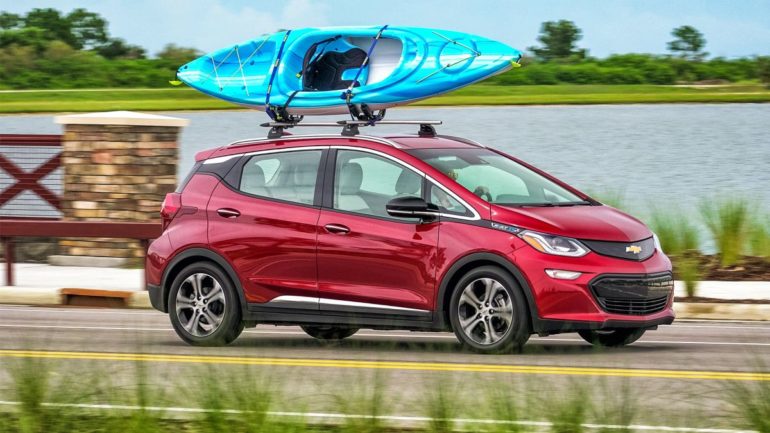Chevrolet has once again recalled its Bolt EV over concerns the electric cars’ battery packs could cause fires. The cars, which come from model years 2017 through 2019, carry a rare manufacturing defect that increases the risk of fires.
GM’s solution for this recall is to replace the defective batteries in affected vehicles, which will be free for owners, but carries a hefty price tag for the automaker.
In its most recent earnings report, GM outlined the costs, but its financial situation otherwise isn’t so bad.
This is the second battery fire-related recall for Chevy Bolt EVs in the last year. GM’s original recall for the cars occurred in November 2020.
However, the fix issued in that recall did not completely solve the problem, as at least one of the two fires reported in July 2021 was in a Bolt that was included in the first round of recalls.
Second time’s not a charm
The first fires were also reported in EVs from model years 2017, 2018, and 2019. The NHTSA investigated and issued a report that noted fires in the cars all shared similar characteristics.
Burn patterns on the back seats indicated that the fires started in the cars’ battery pack, located under the back seat, before spreading to the rest of the interior.
Including the five cars that triggered the original recall, the two involved in this year’s investigation bring the total to seven known fire incidents.
The current recall involves 69,000 Bolt EVs, over 50,000 of which are in the United States alone.
Important guidance for Bolt EV owners
General Motors says it will notify customers when parts are ready, but is advising customers to keep their battery charge level at 90% or below to help mitigate fire risk and not deplete the battery below 70 miles of range. This is similar to what was advised during the original recall.
In terms of cost, the numbers are staggering. GM’s expenditures on this recall alone total nearly $800 million, which comes out to around $11,600 per car.
That’s roughly 60% of GM’s total recall costs in the second quarter of 2021, totaling $1.3 billion. The earnings report was otherwise positive, as the automaker’s profits hit $2.8 billion from revenues of $34.2 billion.



